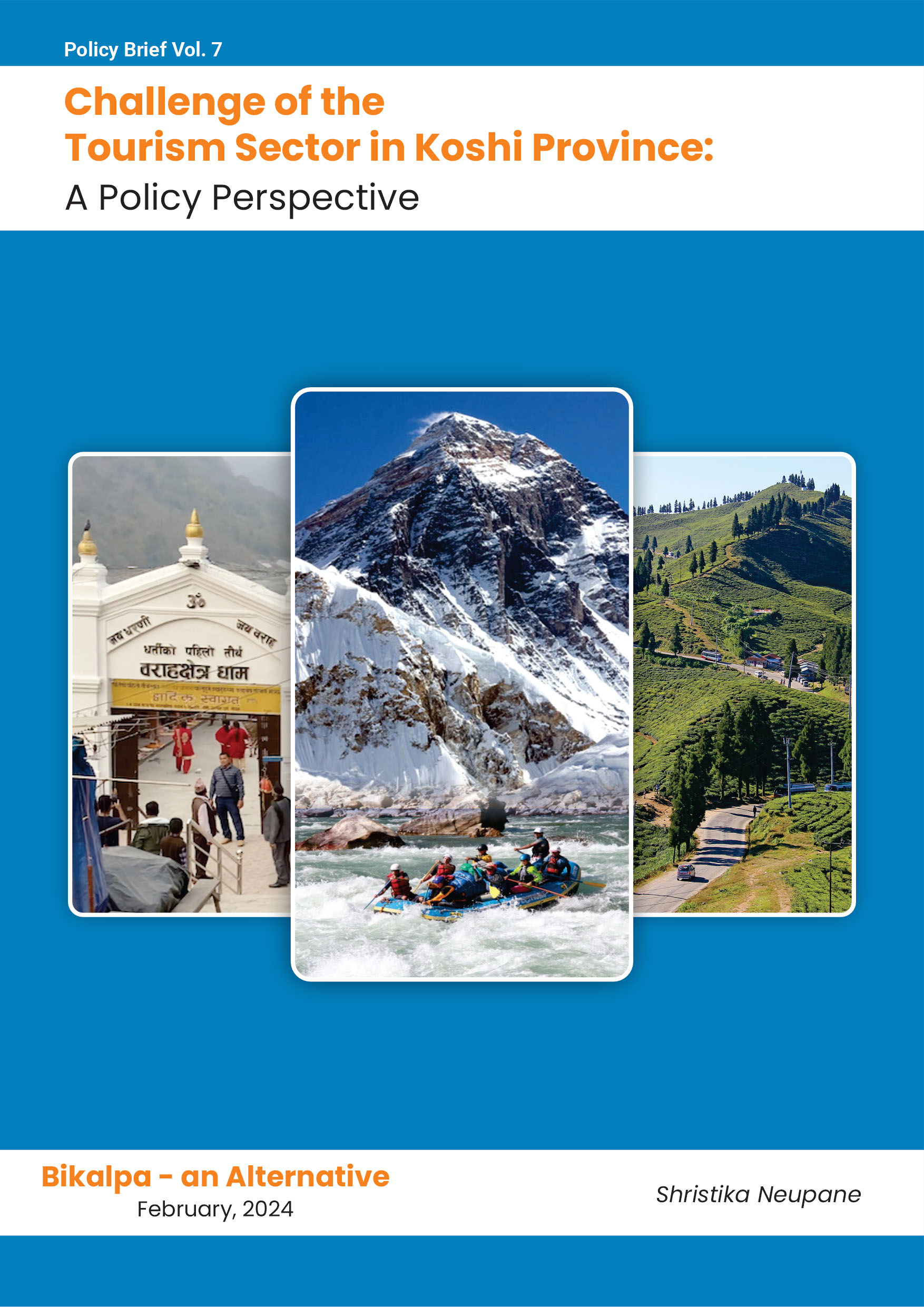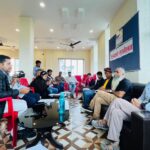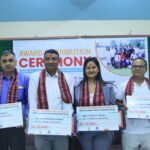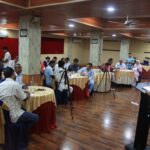
Bikalpa an Alternative, with support from Accountability Lab Nepal, organized an orientation program for the “Bikalpa Fellowship Members” on 23th November 2024, at Hotel Shree Krishna. The program’s objective was to orient the selected volunteers for the year-long” Bikalpa Fellowship Program.” Bikalpa fellowship is a knowledge-based capacity-building program where youth can enroll, benefit from networking, and participate in various discussions, training, workshops, and extracurricular activities on democratic values and accountability throughout year.
As part of the first phase of the program, we called for volunteers through social media and enrolled them through the Google application form. We received over 95 applications from 19 wards of Biratnagar. Among them, 60 applicants were interviewed at Bikalpa’s office. Mr. Basanta Adhikari , Mr Suman Rai , Mr. Sarwagya Raj Pandey and Mr Punam Giri took the individual interview where participants were marked based on their confidence level, leadership quality, time commitment, and enthusiasm regarding the program. After the preliminary screening of volunteers through the interview round, 38 fellows (a boy and a girl each) from 19 wards of Biratnagar were selected.

After that, the selected Fellows were called for an orientation program. Mr Suman Rai started the orientation program with a welcome and shared the objectives and benefits of the program with all the Fellow members. Ms Ranu Shah introduced all the participants with each other. During his presentation, he He also shared his own story about volunteerism and activism of his yesteryears and how that had helped him to take different social initiatives and develop his Leadership Skills. He also encouraged participants to take social responsibility and invest in self-development to enhance their leadership skills.

After that the session was by led by Suvekshya Chapagain, Senior Programme Manager at Accountability Lab Nepal. During her presentation, Ms. Chapagain outlined the lab’s core strategies: campaigns, knowledge building, and community building, all aimed at fostering advocacy and awareness.
She elaborated on the Integrity Icon initiative, which aims to “name and fame” honest government officials, thereby creating an ecosystem of integrity. This initiative seeks to transform public service systems by changing narratives and behaviors and building a network of changemakers. She discussed components like the Integrity School, where young government officials collaborate on impactful actions, and the Integrity Fellowship, which pairs youth outside government with government counterparts for collective reform efforts. Additionally, the Integrity Alumni network engages honest public servants to advocate and act for systemic change.
She also introduced the Civic Action Teams model, which aims to close feedback loops between citizens, governments, CSOs, and the media to address critical issues such as gender inequality, labor migration, and disaster response. Ms. Chapagain concluded by emphasizing the critical role of youth engagement in democratic processes and expressed gratitude to the participants for their active involvement.

After that Mr. Basanta Adhikari delivered an insightful talk on accountability and civic leadership. He began by defining accountability as the willingness to accept responsibility for one’s actions, explaining that the term originates from the late Latin word accomptare (to account). Accountability, he noted, involves being responsible and answerable for decisions and actions while transparently disclosing the outcomes.
He discussed who should be accountable, emphasizing the roles of individuals, private stakeholders, and public agencies. For private stakeholders, accountability ensures trust and ethical conduct, while public agencies must be accountable to maintain public trust and ensure transparency. Mr. Adhikari explored the consequences of a lack of accountability, such as corruption, inefficiency, and a loss of public confidence.

During the session he also divided the participants into group to identify the Accountability issue and present it. This group work helped the participants to build connection with each other. He also highlighted practical strategies, including raising awareness through campaigns, articles, and blogs, as well as engaging in advocacy through delegations, rallies, and public hearings. Tools like the Right to Information (RTI), citizen’s charters, and multimedia campaigns were also recommended to ensure authorities uphold their responsibilities.
On civic leadership, Mr. Adhikari explained that it involves volunteering time, skills, and knowledge to improve community life. He emphasized that civic engagement is at the heart of leadership, reflecting responsibility and a shared commitment to society. He concluded with the powerful reminder that “we are a part of society, not apart,” encouraging participants to take active responsibility in their communities.
After the presentation the final session consisted of a further engagement plan with the Bikalpa Fellowship program. 28 participants attended the orientation Program.











